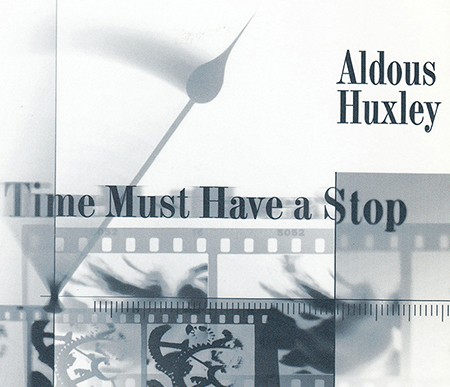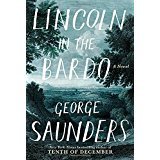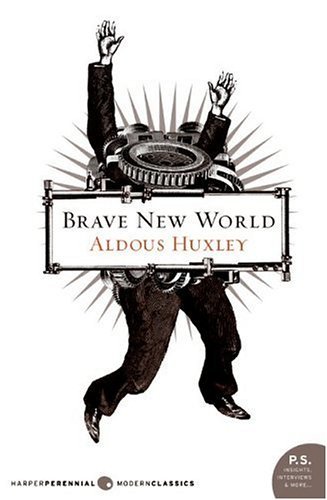Allene Symons's Blog, page 3
August 30, 2017
At Huxley’s Home Under the Hollywood Sign
You could say I was with them in spirit,
or perhaps in a kind of spirited envy. I am referring to the book group that convened last month at Aldous Huxley’s former home to talk about his trending 1932
dystopian novel, Brave New World.
Two dozen or so guests attended the
invitation-only event (hmm…guess I wasn’t on the A list). This legendary home located
on Mulholland Highway is perched on the crest of a canyon, and from the patio –
where the group met – you find yourself uncannily close to the looming letters
of the Hollywood sign. I have known this eerie impression because I have been at
the Huxley home, too, actually three times.
Brave
New World has drawn attention anew in an era when
dystopian fiction, especially Orwell’s 1984
and Margaret Atwood’s Handmaid’s Tale,
have shown up on bestseller lists
and are mentioned by pundits who try to make sense of our current political
climate.

Wish I could have participated in this
reader’s pilgrimage, being a Huxley aficionado and a veteran of three co-ed
book groups. I heard about the event after it was written up in the L.A. Times,
where the article mentioned that the home’s current owner is a friend of a San
Francisco-based book group. Its leader, Sarah McBride, came up with the idea of
this bookish homage to the author.
Aldous spent his last months in this
home, where he died of cancer November 22, 1963, on the same day as the
assassination of John F. Kennedy. The account of Huxley’s last hours encompasses
the now-famous incident of his request for a dose of LSD on his deathbed, or
actually two doses given a few hours apart. With his attending doctor’s
permission, they were given by Huxley’s wife, Laura Archera Huxley. Laura would
go on to outlive Aldous by four decades.
Mrs. Huxley graciously allowed me to
interview her twice at the Huxley home, where we sat on the patio beneath the
Hollywood sign. I mentioned that I had set foot in the home three times. The
third was to return a photograph she loaned me with her permission to scan and include
it in my book, Aldous Huxley’s Hands: His
Quest for Perception and the Origin and Return of Psychedelic Science.
Here is a link to the original article:
http://www.latimes.com/books/la-ca-jc-brave-new-world-20170803-htmlstory.html
July 26, 2017
A Birthday Card for Aldous HuxleyIt occurs to me that Aldous...

A Birthday Card for Aldous Huxley
It occurs to me that Aldous Huxley – born
July 26, 1894 – might appreciate a birthday note, so today I’d like to update
him about one of his pet interests.
If this seems weirdly posthumous, I
should mention that Huxley’s long-standing interest in exploring the mind not
only covered psychedelic states but also extrasensory perception and the
question of survival after death. His widow, Laura Archera Huxley, includes a
poignant chapter about the latter in her memoir This Timeless Moment.
My own book, Aldous Huxley’s Hands, follows
how the author traveled both paths in his pursuit of extraordinary perception.
Aldous was born in Godalming, Surrey,
not far from London, but he lived in Los Angeles for the last the last quarter
century of his life. In the tradition of so many transplants to Southern
California, he took up a different way of life than the one he left behind.
So if I could drop Aldous a quick note
today, I would mention a feature article in the July 2017 issue of Los Angeles
Magazine. The cover shows an eye-catching teaser: “The Big Read: Narco Therapy
in Techie L.A.”
Turns out tech workers in hot spots
like Silicon Valley and L.A.’s burgeoning tech industry are suffering from
depression in droves, and an alarming number are opting for suicide. Enter a
fairly new therapeutic approach utilizing a type of psychedelic substance: ketamine
therapy, also known by its street name as the club drug Special K. Yet under
careful medical supervision, ketamine is proving effective for treatment-resistant
depression or TRD.
You might say that medical application of
psychedelic substances is the legal open sesame of this field. Any hint of
recreational street use catches more eyeballs, though, which may be why the title
of this Los Angeles magazine article sounds more scofflaw (“narco”) than staidly
therapeutic.
Aldous would not recognize the term ketamine.
He might be surprised at the number of synthesized substances available since
his death in 1963, but even a decade earlier, when he wrote The Doors of
Perception (published in 1954), he knew the spectrum was expanding through of
discovery of psychoactive plants around the world (especially those used in
different cultures, such as the Amazon, for shamanic rituals), as well as boutique
substances cooked up in the lab.
My own birthday comes three days after
Huxley’s, mine being on the 29th. His story became part of my writer’s journey—my
retelling of the story of his fascinating life, his bold experiments in
perception and psychedelics, and his friendship with my father when I was a
small child. This story became the heart of my book Aldous Huxley’s Hands.
So Happy Birthday, Aldous – and thank
you for your fascinating life story. It’s a recurring birthday gift to me.
Photo by Humphry Osmond. Courtesy of the Humphry Osmond family.
June 30, 2017
Next Stop Huxley Station
Aldous and his legacy crop up in the
unlikeliest of places. His dual Brave New
World-author-psychedelic explorer identity keeps on giving, endlessly and
deliciously recycled. The latest sparkler occurred this month on cable during
the first scene of the season opener of Orphan Black, when the voice-over of a
conductor cut into the clatter of a barreling-along train and blared out, “Next
stop, Huxley Station.”
And if that homage was too subtle for
some, a caption shown in white drop-out characters flashed on the dark screen:
“A nod to science fiction writer Aldous Huxley.”

In my house we’ve been following the
BBC production of Orphan Black, with its story line of a half-dozen sister clones
in peril. Each character has a distinctly different persona, ranging from a
drug-dealing housewife to a genetic scientist. All are portrayed by the amazing
actor Tatiana Maslany.
To call this SF drama trippy is an
understatement.
I think if Aldous had a chance to catch
that opening episode – and who’s to say he isn’t out there, floating in some
posthumous state of consciousness as described in one of his novels—well, I
think he would delight in seeing yet another clone of the many ways he lives on
today.
Proof of his media immortality would likely
prompt a laugh followed by one of his favorite phrases. Aldous was said to
voice the three words “How absolutely in-cred-ible!” when hearing of a curious
fact.
It seems fitting that reportedly he
would pronounce the syllables of the last word it as if it were three. It
reminds me of the many-in-one world of Orphan Black.
Credit: Temple Street
Productions/BBC America
May 30, 2017
Flashback to Sgt. Pepper’s Lonely Hearts Club Band
This week marks the half-century anniversary of Sgt. Pepper’s
Lonely Hearts Club Band, with its tiny image
of Aldous Huxley in the upper left cluster of the celebrity collage, his head seeming
slightly askew. The Beatles album was released in the U.K. on May 26 and in the
U.S. on June 1, 1967.
Five decades ago, I couldn’t imagine that someday I’d write
a book about the author of Brave New
World and The Doors of Perception,
the former being his most famous
novel and the latter a short work that established him as the literary
godfather of psychedelics. (My nonfiction book, published in 2015, is Aldous Huxley’s Hands: His Quest for
Perception and the Origin and Return of Psychedelic Science).
Today, I decided to listen to the Beatles entire
culture-bending, flashback-inducing album in one long session. As I drifted
through the dozen songs on the Sgt. Pepper album, I recalled life as a college student living in San Francisco, where by 1967 I’d been
living in this stew of psychedelic culture for three years and
experimenting with LSD nearly two. I didn’t have to trek across the country
like so many wide-eyed young people to experience what came to be called the
Summer of Love. It was already familiar, right on my doorstep.
For some of us, the musical-cultural milestone celebrated by
the media this week brings it all back, as did a program on PBS yesterday. Here are a few quotes from
that interview with Anthony DeCurtis, a contributing editor for Rolling Stone,
who was interviewed May 29 by host Alison Stewart on PBS Weekend News (you’ll find a link to the interview below).
De Curtis:
“When Sgt. Pepper dropped it was just cataclysmic. It became the sound track of
what’s come to be known as the Summer of Love—and in many ways it was the
anthem of the Summer of Love.”
“There was a sense of psychedelic drugs
beginning to come on the scene. By the second song [With a Little Help from My
Friends] when you get up to the line, “I get high with a little help from my
friends”– the Beatles stating that so directly in a song on one of their
records was massive. No one blinks an eye at that now.”
“There
were so many other references on the record [such as Lucy in the Sky with
Diamonds]…It kind of sounds silly now but there was a sense of –it was like
envisioning a utopia, there was a real sense that a revolution of consciousness
was taking place, and Sgt. Pepper became the sound track of that.”
Stewart asked if, in DeCurtis’s view, the album still holds
up,
“Yeah,
Absolutely. When you hear the album now, it still packs a lot of power. You
know, if you take the time to listen to it, it is transporting. It’s meant to be a journey. When you
start with the Sgt. Pepper theme and end with A Day in the Life, by the time you
get there you feel that you have journeyed, that you have taken a trip. And I
think the Beatles consciously intended that.”
I didn’t have mind-altering drugs at the ready during my immersion
experience with all dozen songs on the album today. Chemical enhancement hadn’t
occurred to me, really, and not that I missed it. A funny thing about memory.
It has its own way of inducing an experience enhancement.
Still, it might have been interesting…
http://www.pbs.org/newshour/bb/sgt-pe...
http://www.thebeatles.com/album/sgt-peppers-lonely-hearts-club-band
As a refresher, here
are the songs on the album:
Sgt. Pepper’s Lonely
Hearts Club Band
With a Little Help
from My Friends
Lucy in the Sky With
Diamonds
Getting Better
Fixing a Hole
She’s Leaving Home
Being for the Benefit
of Mr. Kite
Within You Without
You
Lovely Rita
Good
Morning Good Morning
Sgt.
Pepper’s Lonely Heart’s Club Band (Reprise)
A Day
in the Life

April 30, 2017
The cover of the 1954 first edition suggests the threshold...

The cover of the 1954 first edition suggests the threshold between the known and the unknown, and a new study takes a look at how our brain deals with new information.
Coding Knocks on Huxley’s Doors of Perception
Ok, this is a rather nerdy blog and I imagine I’ll
lose some readers when I dip into the topic of coding. It’s a word found in the
lingo-toolbox of several disciplines, ranging from the branch of literary
criticism called semiotics to the business of book publishing when codes are
assigned to designate different book categories or genres (these are called
BISAC codes). Perhaps a more familiar use of the word is in computer speak; software
engineers write code.
This brings me to three seemingly
unrelated uses of coding—or are they unrelated?
Well, I happened to see the film The
Circle yesterday, which is based on Dave Eggers’s 2013 novel and stars Tom
Hanks. The alarming take-it-to-extremes premise of the film is that algorithms
have the potential to penetrate our privacy and anticipate our next moves. Then
this morning, I read an article about Facebook in the New York Times Magazine,
the point being that algorithms target us and send us the information and news
that our patterns indicate we desire or are likely to respond to, even if we
don’t know it yet, no matter whether the news or information is true or
false-fake – no matter whether this push of input undermines democracy and our
ability to make informed decisions.
This all connects to a published paper I
noticed a few days ago, when my Google Alerts drew my attention to the study
described below – and since I am citing it I don’t think the authors of this
scholarly paper will mind that I give them a showcase. Of course, I write about
what they refer to in my book Aldous Huxley’s Hands: His Quest for Perception
and the Origin and Return of Psychedelic Science – minus the word coding.
I will let the following abstract speak for
itself and stand in as my monthly Huxley’s Hands blog. I have taken the liberty
to shorten it somewhat, as indicated by ellipses. The attribution and link to
the original is found at the end.
“Perception is
in the Details:
A Predictive Coding Account of the Psychedelic Phenomenon”
2. Predictive
Coding
“In his book
“The Doors of Perception” (1954), Aldous Huxley described some of his
psychedelic experiences, which led him to propose the idea that perception is a
door between things that are known and things that are unknown. This idea
turned out prescient of the contemporary predictive coding account of brain
processing. According to predictive coding, perception is a continuous process
of combining the brain’s previous knowledge with new incoming data….. This
enables the brain to predict its future state which is an evolutionary
necessity. “
This study is
co-authored by Sarit Hashkes, Iris van Rooij and Johan Kwisthout Radboud
University, Donders Institute for Brain, Cognition and Behavior, Nijmegen, The
Netherlands
Here is the link
to the scholarly paper:
https://noisebridge.net/images/e/ef/Perception_is_in_the_Details12.pdf
March 31, 2017
Dystopia Slinks Through Our Digital Doors
If living
in today’s curse-of-interesting-times culture, Aldous Huxley would have been
turning out essays like crazy – as he once did for literary journals as well
as popular magazines like Life, Esquire, and the paranormal-SciFi magazine
Tomorrow.
But
Aldous isn’t here to publish such pieces, so we look elsewhere for a very
different take from writers and producers of electronic media.
For weeks now, eye-popping news headlines have provide fodder, and I see no end
in sight unless one considers the possibility of regime change.
This
month within the span of a single week, a New York Times Book Review feature
(March 19) and a segment on 60 Minutes (March 26) tackled the specter of
dystopia in our midst. NYT made a literary-historical comparison between today
and George Orwell’s 1984 and Aldous
Huxley’s Brave New World. In its
segment “Fake News,” 60 Minutes demonstrated in real time the mechanism behind
an unfolding digital dystopia.
In
the 60 Minutes segment, we saw how Scott Pelley’s single tweet (which normally
might have reached a few friends) was magnified by bots or robot clicks or “likes”
tens of thousands of times until it swarmed the web with content that could
have been misinformation. A useful metaphor might be this: bots are how bad
guys easily and repeatedly carpet-bomb the Internet with lies.
This
is a relatively new twist on the idea of technology’s control over society,
which is one of the central ideas in Orwell and Huxley’s dystopian classics. I
wrote about how they differ in my blog of January 2016 – almost a year before
a tsunami hit our domestic political shores (if you are interested you might
want to see that archived blog).
Huxley
was more than wary about unintended consequences of technology; after all, his
essay readers in the 1950s were under the cloud of nuclear testing.
He repeatedly
cautioned about technology gone wild, and how it can seem innocent or even idealized at first. The bots of the 60 Minutes segment “Fake News” are mutant
cousins of Search Engine Optimization (SEO), a basic technique in online
marketing and the basis for how we look up anything whether on Google, Yelp or
elsewhere. Even this blog I am writing today will be tagged, or optimized, in a
limited way.
It
seems to me that this all started out as garden variety optimizing for search
engines—then led to a marketing technique of “gaming” on Google or Amazon (such as self-pub fiction) in pursuit
of higher rankings that might propel a product or message to the attention of the
largest possible number of eyeballs. Now we have bots, including those launched
from distant shores, taking Search Engine Optimization to the social media
stratosphere where no type of message has ever gone before.
Remember
the old Microsoft ad from two decades ago, the one that projected a utopia
where we could simply telecommute while working on a laptop from a back-yard
deck, overlooking a lake with a scenic mountain backdrop? The slogan was “Where
do you want to go today?”
No
one knows where the consequences of web technology will take us, but many would
say what was envisioned as a utopia is starting to look more like its opposite.
Judging by the fictional handbooks of 1984
and Brave New World, it looks like
dystopia has blown in unimpeded through an open digital door.
February 27, 2017
Huxley and Lincoln in the Bardo
When
it came to his own fiction, Aldous Huxley named as his favorite Time Must Have a Stop. A pivotal scene
in this 1944 novel spirals through a time-suspended six pages, showing the disorientation
of a suddenly deceased soul flailing about in a state of limbo. Unable to move
on, he clings to the skein of traits that once made up his personal identity
until it becomes clear that he has entered what Huxley later called the “post-human
state.”

Now,
try 368 pages of limbo and not one print or e-reader screen-full (in my opinion)
too many. Published earlier this month, the novel Lincoln in the Bardo by George Saunders merges the unspeakable loss
of a child with a shaky moment in history, when a president embroiled in the War
Between the States was almost undone by grief. The drama plays out against a cranky
chorus of personalities gathered “on the other side,” where they refuse to
relinquish earthly ties of longing, hatred, or regret.

The
touching centerpiece of this many-souled panorama is the encounter between famous
father and son. Willie Lincoln, dispatched at a tender age by illness, doesn’t understand
where he is when the boy finds himself surrounded by partly disembodied beings
held self-captive in the bardo – an
intermediate state in Tibetan Buddhism similar to the Western religious notion
of purgatory.
After
his son’s funeral, fictionally consistent with the historical record, Abraham
Lincoln returns alone on horseback by night and enters the tomb, where he opens
the sarcophagus and holds and caresses his dead son.
At
turns poignant and irreverent, Lincoln in
the Bardo is oddly voyeuristic in how it induces a rapt, otherworldly fascination.
This is the first novel I have read in a long time that perhaps Aldous (also
the author of the historically-based work The
Devils of Loudun), with his interest in history and the afterlife and
altered states might, himself, like to have written. I can imagine Huxley in
the post-human state contributing a blurb for the Saunders book and, while at
it, throwing in a few lines of reportage from the other side.
December 30, 2016
Closing out 2016, on the eve of an unpredictable 2017, I find...

Closing out 2016, on the eve of an unpredictable 2017, I find myself in a retrospective, what-if kind of mood.
Eighty years ago, Studies in Hand-Reading by Dr. Charlotte Wolff appeared in print (title page shown), with a preface by Aldous Huxley and several ink impressions of different individuals, including this one of Huxley’s hand.
Around two decades later, Huxley came across my father’s finely grained, more detailed photographic technique for rendering hands, and that discovery in many ways changed the future of my family (which I write about in my book Aldous Huxley’s Hands).
Dr. Wolff initially sparked Huxley’s interest in how the hand might provide a window for greater understanding of the human condition… and maybe even a deeper understanding, verging on the mystical. His novel Those Barren Leaves includes this passage near the end on page 360, where his character Calamy says:
“And I believe that if one could stand the strain of thinking really hard about one thing–this hand, for example–really hard for several days, or weeks, or months, one might be able to burrow one’s way right through the mystery and really get at something – some kind of truth, some explanation.”
It occurs to me that if Charlotte Wolff had not shown him the way, if Huxley had not become interested in hands, then he and my father would not have met. My dad would not have become friends with, and influenced by, this famous man. He would not have attended the Tuesday night salons at Huxley’s home on North Kings Road. I would not have written my book.
Yet if not for Dr. Wolff (like the proverbial butterfly wing stirring up the atmosphere), then our family’s fate and my own might have been different, for better or for worse.
Year’s end is the time for auld lang syne, that phrase from an ancient song dating back to an oral tradition in Scotland. It means ‘old long ago’ or days gone by. I raise my cup of gratitude, not without what-if curiosity, to Dr. Charlotte Wolf.




